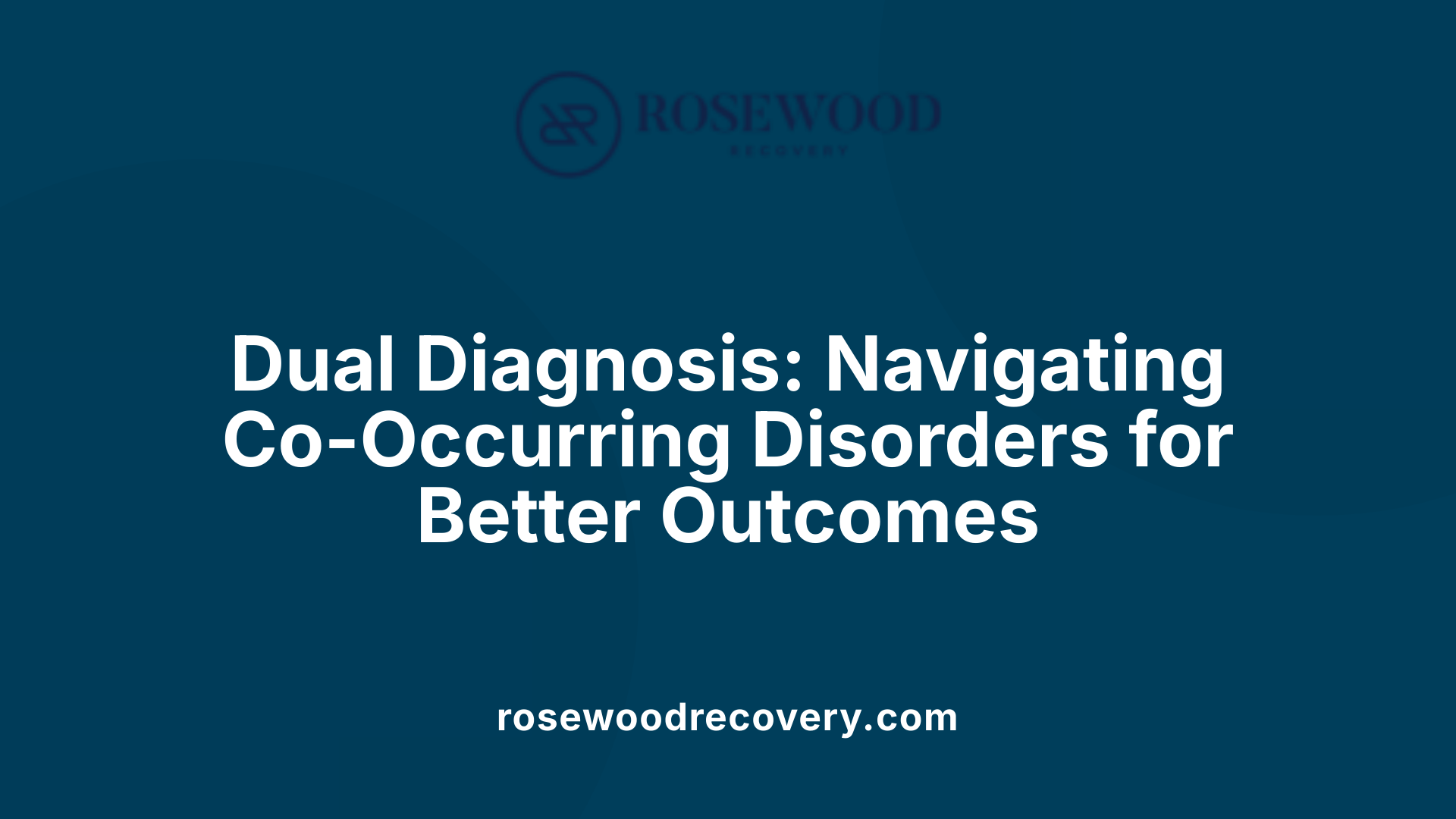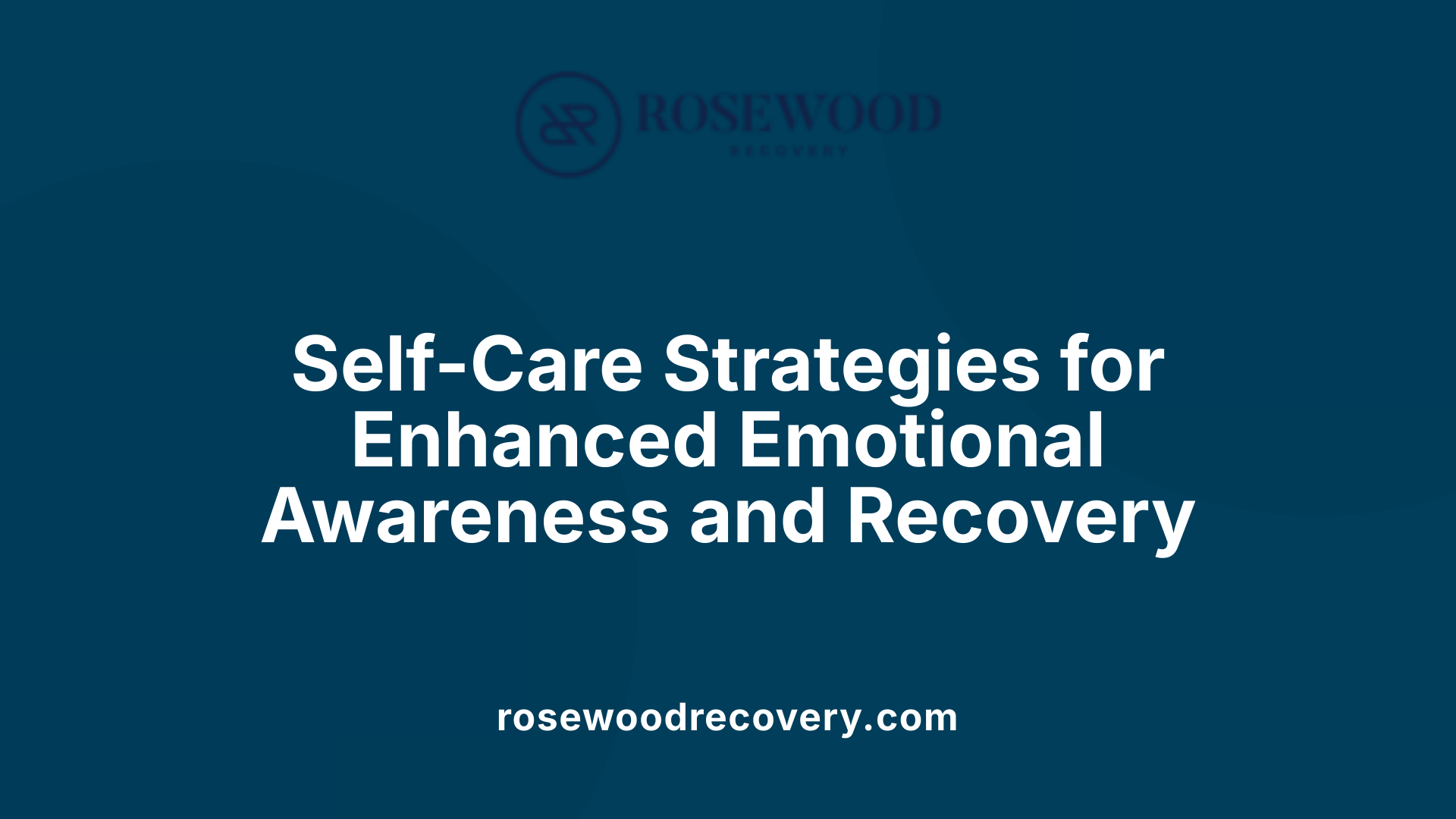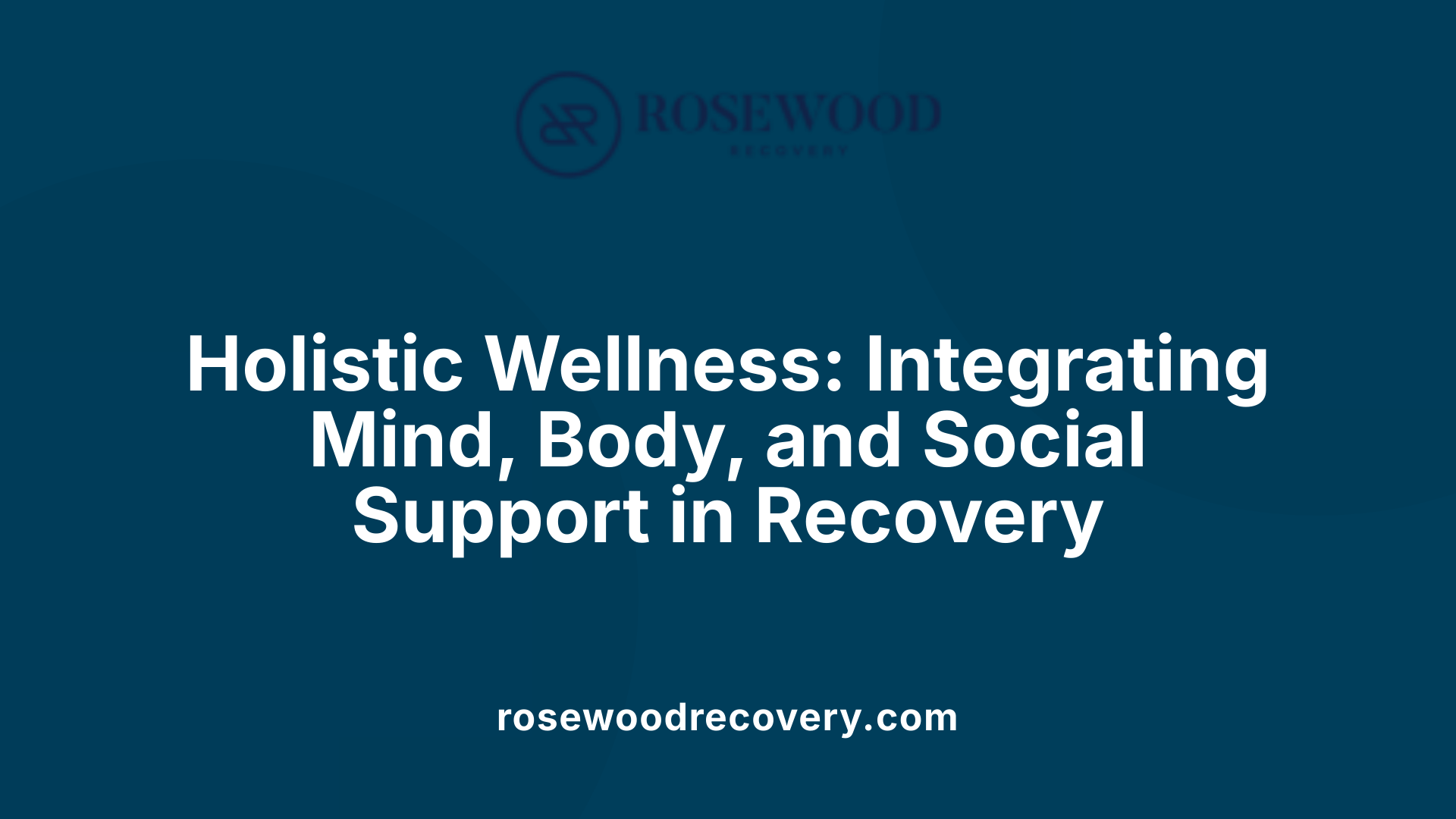The Foundation of Long-Term Sobriety: Emotional Awareness
Long-term sobriety demands more than abstinence—it requires a deep understanding and management of one’s emotional landscape. Emotional awareness is increasingly recognized as a cornerstone in sustainable recovery from substance use disorders (SUDs). This article explores how emotional regulation underpins successful treatment, aids in relapse prevention, and supports overall well-being for individuals on the path to lifelong sobriety.
The Link Between Emotion Regulation and Substance Use Disorders
What challenges do individuals with substance use disorders face in regulating emotions?
Individuals with substance use disorders (SUDs) face considerable challenges in managing their emotions. Research reveals that these individuals score significantly higher on the Difficulties in Emotion Regulation Scale (DERS) than those without SUDs. This scale measures a range of emotion regulation difficulties.
Difficulties in Emotion Regulation Scale findings
A meta-analysis reviewing 22 studies found a mean difference of 21.44 in DERS scores between individuals with SUDs and control groups. This notable difference highlights substantial challenges in emotion regulation among people with substance use disorders. They consistently show poorer performance across all DERS subscales, indicating broad-based struggles in managing emotions effectively.
Emotion regulation deficits in strategies and impulse control
Among the various areas assessed, the most pronounced deficits correspond to the 'Strategies' and 'Impulse' subscales of the DERS. The 'Strategies' subscale evaluates an individual's ability to employ effective emotion regulation techniques. The 'Impulse' subscale reflects the capacity to control impulsive behaviors when experiencing emotional distress. Individuals with SUDs demonstrate particular difficulty with these aspects, which exacerbates their vulnerability to relapse and hinders recovery.
Overall, these emotional regulation impairments indicate why enhancing these skills is crucial in treatment plans for substance use disorders, as better emotion management can reduce relapse risk and improve outcomes.
Emotional Dysregulation as a Catalyst for Addiction and Relapse

How does emotional dysregulation contribute to substance abuse and relapse?
Emotional dysregulation plays a significant role in increasing the risk of substance abuse and relapse. When individuals struggle to manage their emotions effectively, they often experience heightened stress, anxiety, and emotional instability. These intense and overwhelming feelings can push them to seek relief through drugs or alcohol, using substances as a form of self-medication.
This tendency to self-medicate is especially common among people struggling with untreated depression and anxiety, which impair coping and decision-making skills. Without proper emotional regulation skills, the urge to alleviate negative emotions by turning to substances becomes stronger, making it more difficult to avoid starting or returning to substance use.
Impact of emotional dysregulation on addiction risk
Research shows that approximately 75% of addiction cases involve emotional dysregulation. People who cannot regulate their emotions often face higher cravings and relapse rates because emotional distress is a powerful trigger for substance use. The inability to control impulses or apply healthy coping mechanisms increases vulnerability to addiction.
Self-medication of depression and anxiety with substances
Individuals frequently use substances to manage symptoms related to depression and anxiety, believing it temporarily eases their emotional pain. Unfortunately, this cycle worsens both the mental health issues and addiction. Major depression nearly doubles the risk of substance use disorders, while co-occurring disorders make recovery more complex.
Relapse risk related to poor emotional control
Poor emotional regulation skills contribute directly to relapse. Unmanaged emotional pain or sudden emotional triggers can cause overwhelming cravings and reduce therapy engagement. Without learning effective strategies such as mindfulness, cognitive behavioral techniques, or dialectical behavior therapy skills, individuals remain vulnerable to returning to substance use.
Addressing emotional dysregulation through targeted therapies and coping mechanisms is therefore crucial in addiction treatment. Developing skills to tolerate distress, manage impulses, and regulate emotions can reduce relapse risk and support lasting recovery.
Co-Occurring Mental Health Disorders and Their Impact on Recovery

How common are co-occurring mental health diagnoses in people with substance use disorders?
Approximately half of individuals with substance use disorders (SUDs) also have a diagnosed mental health condition, such as depression, anxiety, PTSD, or bipolar disorder. This high prevalence highlights the critical need for dual-focused treatment strategies that address both addiction and mental health simultaneously.
How do depression and bipolar disorder influence substance abuse risk?
Depression and bipolar disorder significantly increase the risk of developing a substance use disorder. Major depression doubles the likelihood, while bipolar disorder raises the risk sevenfold. People often self-medicate to alleviate depressive symptoms, which can worsen both their mental health and addiction. Impaired decision-making and poor coping abilities associated with untreated depression also contribute to a higher chance of substance misuse.
Why is integrated treatment important for addressing co-occurring disorders?
Integrated treatment combines medical, psychological, and social support tailored to individual needs, targeting both substance use and mental health issues concurrently. Evidence-based therapies such as cognitive-behavioral therapy (CBT) and dialectical behavior therapy (DBT) are crucial components. This approach improves treatment adherence, reduces relapse risk, and addresses underlying issues more effectively than treating disorders separately.
What comprehensive treatment services are available for substance abuse, mental health issues, and various forms of addiction?
Comprehensive treatment services include medically supervised detoxification, medication-assisted therapies, behavioral therapies like CBT and DBT, family counseling, and peer support groups. Centers such as American Addiction Centers offer holistic programs that incorporate evidence-based methods and community-based mental health care. Addressing co-occurring disorders together leads to better recovery outcomes and sustained sobriety.
Therapeutic Approaches to Enhance Emotional Regulation in Recovery
Which therapeutic approaches support emotional regulation in addiction treatment?
Several therapeutic approaches play a vital role in teaching emotional regulation skills essential for addiction recovery. Cognitive Behavioral Therapy (CBT) helps individuals identify and challenge negative thought patterns that exacerbate emotional distress and substance use. Dialectical Behavior Therapy (DBT) equips patients with skills in emotion regulation, distress tolerance, mindfulness, and interpersonal effectiveness, fostering long-term sobriety.
Emotion-Focused Therapy (EFT) targets the understanding and processing of emotions to address core issues underlying addiction. Expressive arts therapy offers a creative outlet for emotional expression, aiding regulation and healing through various art forms.
Mindfulness and meditation techniques
Mindfulness and meditation are integral techniques used alongside therapies like CBT and DBT. These practices enhance emotional awareness, reduce cravings, and promote emotional balance. Engaging in mindfulness helps individuals cultivate self-awareness and the ability to observe emotions without immediate reaction, which is key to preventing relapse.
Emotion regulation skills training
Emotion regulation training teaches coping strategies such as deep breathing, journaling, gratitude practices, and social support utilization. These strategies improve resilience against emotional triggers like stress, anxiety, and trauma, common relapse precursors. Incorporating stress management methods, including time management and meditation, further supports sustained recovery.
Together, these approaches form a comprehensive framework that addresses both emotional challenges and substance use behaviors, significantly enhancing recovery outcomes by reducing relapse risk and building emotional stability.
Building Emotional Sobriety: Beyond Abstinence
What is emotional sobriety and why is it important for sustaining recovery?
Emotional sobriety signifies an advanced stage in addiction recovery where individuals learn to manage their emotions effectively without turning to substances. Unlike mere abstinence, which focuses solely on stopping substance use, emotional sobriety emphasizes developing emotional intelligence and resilience. This involves understanding, processing, and regulating intense feelings in healthy ways.
Why managing emotions without substances matters
Managing emotions without the crutch of alcohol or drugs is vital for sustaining recovery. Emotional challenges like stress, fear, anger, or sadness often trigger relapse if individuals aren't equipped with healthy coping mechanisms. Emotional sobriety provides the tools to face life’s difficulties head-on, reducing the risk of returning to substance use during difficult times.
Challenges in achieving emotional sobriety
Many people in recovery face challenges such as trauma, unresolved emotional pain, and co-occurring mental health disorders like depression or anxiety. These complexities can increase emotional instability, making it harder to regulate feelings and sustain sobriety. Overcoming these challenges requires specialized therapeutic approaches that focus on emotional healing.
Therapeutic approaches supporting emotional sobriety
Treatment models such as Dialectical Behavior Therapy (DBT), Rational-Emotive Behavior Therapy (REBT), and Mindfulness-Based Cognitive Therapy help individuals develop emotional regulation skills. These therapies teach techniques like mindfulness, distress tolerance, and emotional awareness, crucial for building resilience and handling triggers without substance use.
The role of support systems and lifestyle changes
Family support, peer groups like AA or NA, and open communication are critical in fostering emotional sobriety. Additionally, engaging in meaningful activities, practicing mindfulness, and maintaining healthy lifestyle habits—such as regular exercise, balanced nutrition, and stress management—support emotional stability and long-term recovery.
By focusing on emotional sobriety, individuals move beyond just abstinence, equipping themselves to face emotional challenges successfully and maintain lasting wellness.
The Role of Self-Care and Lifestyle in Supporting Emotional Awareness

How do self-care and lifestyle changes support emotional awareness and sobriety?
Self-care and lifestyle changes are fundamental in fostering emotional awareness, which plays a vital role in sustaining sobriety. Mindful eating nourishes the body and mind, enhancing mental clarity and emotional balance. Regular physical activity not only improves physical health but also releases endorphins that elevate mood and reduce anxiety.
Adequate sleep is another essential factor, as it helps regulate emotions and reduces vulnerability to stress. Incorporating mindfulness practices like meditation sharpens self-awareness and helps individuals recognize emotional triggers, leading to more effective emotion regulation.
Stress management techniques such as time management, relaxation exercises, and setting achievable goals assist in lowering overall stress levels and prevent emotional overwhelm. These elements contribute to developing resilience and reduce the likelihood of relapse.
Holistic self-care embraces a combination of physical, emotional, and mental well-being strategies. This includes maintaining healthy social connections, engaging in creative hobbies, and ensuring regular self-recharging activities like relaxation and nature walks. Together, these practices promote emotional stability and improve quality of life, making them indispensable in addiction recovery and long-term sobriety.
Identifying and Managing Emotional Triggers to Prevent Relapse
Why is identifying emotional triggers important and how can they be managed?
Recognizing emotional triggers is crucial in preventing relapse during addiction recovery. These triggers often include negative emotions like anger and depression, social situations that encourage substance use, environmental cues, and physical cravings. Additionally, co-occurring mental health issues such as anxiety or trauma can intensify these triggers.
Common Emotional and Environmental Triggers
Individuals recovering from substance use disorders commonly face triggers such as:
- Negative emotions (e.g., sadness, frustration, loneliness)
- Stressful social pressures or parties
- Specific environments linked to prior substance use
- Physical cravings and withdrawal symptoms
- Underlying mental health disorders like depression or PTSD
Being aware of these triggers helps individuals anticipate high-risk situations and apply coping skills proactively.
Assessment of Mental Health Needs
A thorough evaluation by trained professionals is essential to identify co-occurring mental health conditions that might fuel emotional triggers. This assessment guides the creation of tailored treatment plans that address both addiction and mental health simultaneously, improving the chances of sustained recovery.
Relapse Prevention Strategies
Effective relapse prevention includes a combination of approaches:
- Developing emotional regulation skills through therapies such as Cognitive Behavioral Therapy (CBT) and Dialectical Behavior Therapy (DBT)
- Utilizing stress management techniques like mindfulness meditation and time management
- Engaging in self-care routines, including balanced nutrition, regular exercise, and sufficient sleep
- Building strong social support networks and participating in peer support groups
- Identifying and avoiding high-risk situations whenever possible
By integrating these strategies and addressing emotional and mental health needs, individuals create a robust defense against relapse, fostering long-term sobriety and wellbeing.
Support Systems: Therapy, Family, and Peer Groups in Emotional Recovery

What role do support systems play in fostering emotional sobriety?
Support systems are vital in helping individuals maintain emotional sobriety during recovery from substance use disorders. Therapists offer a safe and confidential environment where individuals can express their emotions freely. Through various therapeutic approaches, they provide guidance on managing emotional challenges and developing healthier coping strategies.
Family therapy plays a crucial role by improving communication and fostering empathy among family members. Open dialogue helps to resolve conflicts and strengthens emotional bonds, creating a supportive home environment that aids lasting recovery.
Peer support groups, such as Alcoholics Anonymous (AA) and Narcotics Anonymous (NA), contribute significantly by offering a sense of community and shared experience. These groups provide accountability and opportunities for emotional expression, allowing members to exchange coping techniques and encouragement. This collective support is essential for sustaining motivation and resilience in emotional regulation.
Together, these support systems form a comprehensive network that reinforces emotional sobriety. They help individuals build emotional intelligence, reduce feelings of isolation, and offer practical tools to navigate life's stressors without resorting to substance use.
Mindfulness and Emotional Intelligence as Pillars of Sobriety
How Do Mindfulness and Emotional Intelligence Contribute to Sustained Sobriety?
Mindfulness and emotional intelligence are fundamental to achieving and maintaining sobriety. Mindfulness techniques encourage individuals to pay full attention to the present moment without judgment, which enhances self-awareness. This heightened awareness helps recovering individuals recognize emotional triggers, thoughts, and feelings that might lead to relapse.
Developing emotional intelligence further empowers individuals by enabling them to understand, manage, and appropriately express their emotions. Such skills reduce impulsive reactions and improve coping mechanisms when faced with stress or cravings.
Mindfulness Techniques
Practices such as meditation, deep breathing, and journaling are commonly used mindfulness techniques in addiction recovery. These methods help calm the mind, reduce anxiety, and create space to observe emotional responses objectively. Regular mindfulness practice promotes emotional balance and fosters resilience against stress, which is a common relapse trigger.
Improving Self-Awareness and Emotional Intelligence
Improved self-awareness gained through mindfulness allows individuals to identify negative thought patterns and emotional dysregulation early. Emotional intelligence skills—like recognizing one’s feelings, empathizing with others, and exercising emotional control—can be cultivated through therapies such as Dialectical Behavior Therapy (DBT) and Cognitive Behavioral Therapy (CBT). This growth supports healthier decision-making and emotional responses, critical for long-term recovery.
Impact on Relapse Prevention
By honing mindfulness and emotional intelligence, individuals increase their capacity to manage cravings and emotional distress. These abilities are linked to lower relapse rates as individuals become better equipped to face challenges without resorting to substance use. Integrating emotional regulation strategies into treatment plans enhances both mental health and recovery outcomes, supporting sustained sobriety.
| Aspect | Description | Benefits in Recovery |
|---|---|---|
| Mindfulness Techniques | Meditation, breathing exercises, journaling | Enhances calmness, reduces anxiety |
| Emotional Intelligence Skills | Recognizing, understanding, and managing emotions | Improves coping, reduces impulsivity |
| Therapeutic Support | CBT, DBT focusing on emotion regulation and distress tolerance | Builds resilience, supports emotional health |
| Relapse Prevention Impact | Better stress management and emotional balance | Decreases relapse risk |
The Importance of Continuous Mental Health Support Post-Treatment
Why is continuous mental health support critical after initial addiction treatment?
Continuous mental health support after completing addiction treatment is essential for maintaining long-term sobriety and managing co-occurring disorders. Therapy sessions provide a safe space for individuals to address ongoing emotional difficulties, stressors, and potential relapse triggers. Medication management by healthcare professionals ensures that symptoms of co-occurring mental health disorders, such as depression or anxiety, are effectively controlled to reduce cravings and improve quality of life.
Ongoing participation in support groups offers community, accountability, and shared experiences, which are vital for emotional encouragement and sustained recovery. These groups complement professional care by fostering connectedness and reducing feelings of isolation.
Aftercare planning involves developing strategies tailored to an individual’s specific triggers and emotional needs. This planning promotes resilience by equipping individuals with coping mechanisms for challenges such as trauma, stress, and negative emotions that could otherwise lead to relapse.
Effective management of co-occurring disorders long-term requires a comprehensive and integrated approach. This includes regular mental health assessments, therapy such as cognitive-behavioral therapy (CBT) or dialectical behavior therapy (DBT), and holistic treatments like mindfulness practice and physical activity. Such care addresses both the substance use disorder and mental health conditions together, significantly improving recovery outcomes.
In summary, continuous mental health care post-treatment supports emotional regulation, reduces relapse risk, and enhances overall well-being, making it a cornerstone of sustainable addiction recovery.
Holistic Approaches: Integrating Physical, Emotional, and Social Wellness

What Are Comprehensive Wellness Strategies in Addiction Recovery?
Holistic approaches in addiction recovery focus on the integration of physical, emotional, and social wellness. These strategies aim to support individuals not just in stopping substance use but in building a fulfilling and balanced life. Techniques include mindfulness practice, physical activity, nutrition management, social support, and mental health therapies that work together to promote overall health.
How Do Nutrition, Physical Health, and Social Connection Support Recovery?
Nutrition and physical health play vital roles in long-term recovery by enhancing physical well-being, mental clarity, and emotional stability. Regular exercise boosts mood and resilience, while mindful eating helps maintain energy and bodily health. Social connection is equally important, providing emotional support, accountability, and opportunities for meaningful engagement, which reduce feelings of isolation that often trigger relapse.
How Do Holistic Approaches Improve Quality of Life in Recovery?
By addressing the person as a whole, holistic approaches foster sustained wellness beyond initial sobriety. They encourage healthy habits like attending support groups, engaging in hobbies, and setting personal goals to promote emotional sobriety and resilience. Integration of therapies such as CBT and DBT alongside lifestyle changes supports coping with emotional challenges and reduces relapse risk.
Together, these methods empower individuals to manage emotions effectively, develop strong support networks, and create a lifestyle conducive to lasting recovery and improved quality of life.
Emotional Awareness: The Cornerstone of Lifelong Sobriety
Achieving long-term sobriety hinges not merely on abstaining from substances but on cultivating emotional awareness and regulation. Addressing emotional dysregulation through integrated therapies, active self-care, supportive relationships, and continuous mental health care empowers individuals to navigate life’s challenges without relapse. Embracing emotional sobriety transforms recovery into a sustainable, fulfilling journey of personal growth and resilience.
References
- Emotion regulation in substance use disorders: a systematic ...
- The Role of Emotions in Recovery and Treatment
- Self-Care Importance in Addiction Recovery for Well-Being
- Why Is Mental Health Awareness Important in Recovery?
- Emotional Sobriety in Recovery | Grand Falls
- Empowering Wellness: Emotional Regulations Impact On ...
- Emotional Regulation in Addiction Treatment at Antrim, NH


.jpeg)

